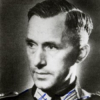Ernst Junger

Ernst Junger
Ernst Jüngerwas a highly decorated German soldier and author who became famous for his World War I memoir Storm of Steel. The son of a successful businessman and chemist, Jünger rebelled against an affluent upbringing and sought adventure in the Wandervogel, before running away to briefly serve in the French Foreign Legion, an illegal act. Because he escaped prosecution in Germany due to his father's efforts, Jünger was able to enlist on the outbreak of war. During an ill-fated German...
NationalityGerman
ProfessionWriter
Date of Birth29 March 1895
CountryGermany
Seen politically, systems follow one another, each consuming the previous one. They live on ever-bequeathed and ever-disappointed hope, which never entirely fades. Its spark is all that survives, as it eats its way along the blasting fuse. For this spark, history is merely an occasion, never a goal.
The more the panic grows, the more uplifting the image of a man who refuses to bow to the terror.
Liberalism is to freedom as anarchism is to anarchy.
The (capital punishment) controversy passes the anarch by. For him, the linking of death and punishment is absurd. In this respect, he is closer to the wrongdoer than to the judge, for the high-ranking culprit who is condemned to death is not prepared to acknowledge his sentence as atonement; rather, he sees his guilt in his own inadequacy. Thus, he recognizes himself not as a moral but as a tragic person.
For the anarch, little is changed when he strips off a uniform that he wore partly as fool's motley, partly as camouflage. It covers his spiritual freedom, which he will objectivate during such transitions. This distinguishes him from the anarchist, who, objectively unfree, starts raging until he is thrust into a more rigorous straitjacket.
The political trend is always to be observed, partly as a spectacle, partly for one's own safety. The liberal is dissatisfied with regime; the anarch passes through their sequence - as inoffensively as possible - like a suite of rooms. This is the recipe for anyone who cares more about the substance of the world than its shadow - the philosopher, the artist, the believer.
The anarch is oriented to facts, not ideas. He fights alone, as a free man, and would never dream of sacrificing himself to having one inadequacy supplant another and a new regime triumph over the old one. In this sense, he is closer to the philistine; the baker whose chief concern is to bake good bread; the peasant, who works his plow while armies march across his fields.
We do not escape our boundaries or our innermost being. We do not change. It is true we may be transformed, but we always walk within our boundaries, within the marked-off circle.
We had set out in a rain of flowers to seek the death of heroes. The war was our dream of greatness, power and glory. It was a man's work, a duel on the fields whose flowers would be stained with blood. There is no lovelier death in the world... Anything rather than stay at home, anything to make one with the rest.
The special trait making me an anarch is that I live in a world which I ‘ultimately’ do not take seriously. This increases my freedom; I serve as a temporary volunteer
Really, doesn´t everything make sense? There are, of course, things from which we more or less recover, although some of them are too harsh even for saints. But that is no reason to accuse God. Even if there are reasons to doubt him, the fact that he did not arrange the world like a well-ordered parlor is not one of them. It speaks rather in his favor. This used to be much better understood.
In my experience, I have found that creativity demands a vigilant mind, which is weakened by the influence of drugs.
The anarchist, as the born foe of authority, will be destroyed by it after damaging it more or less. The anarch, on the other hand, has appropriated authority; he is sovereign. He therefore behaves as a neutral power vis-à-vis state and society. He may like, dislike, or be indifferent to whatever occurs in them. That is what determines his conduct; he invests no emotional values.
Freedom is based on the anarch’s awareness that he can kill himself. He carries this awareness around; it accompanies him like a shadow that he can conjure up. “A leap from this bridge will set me free.